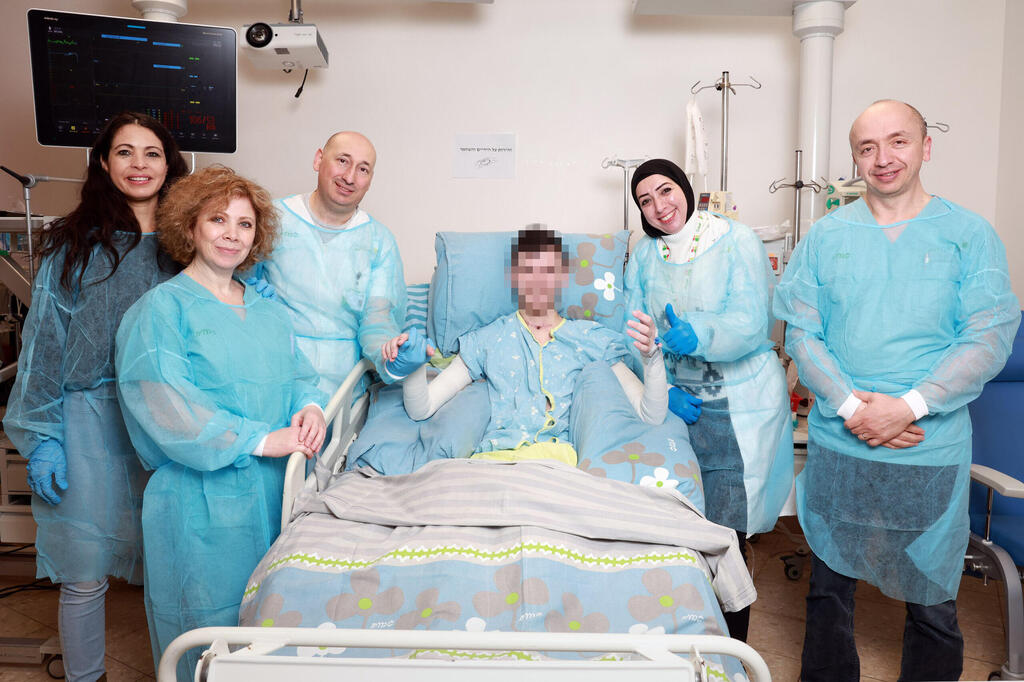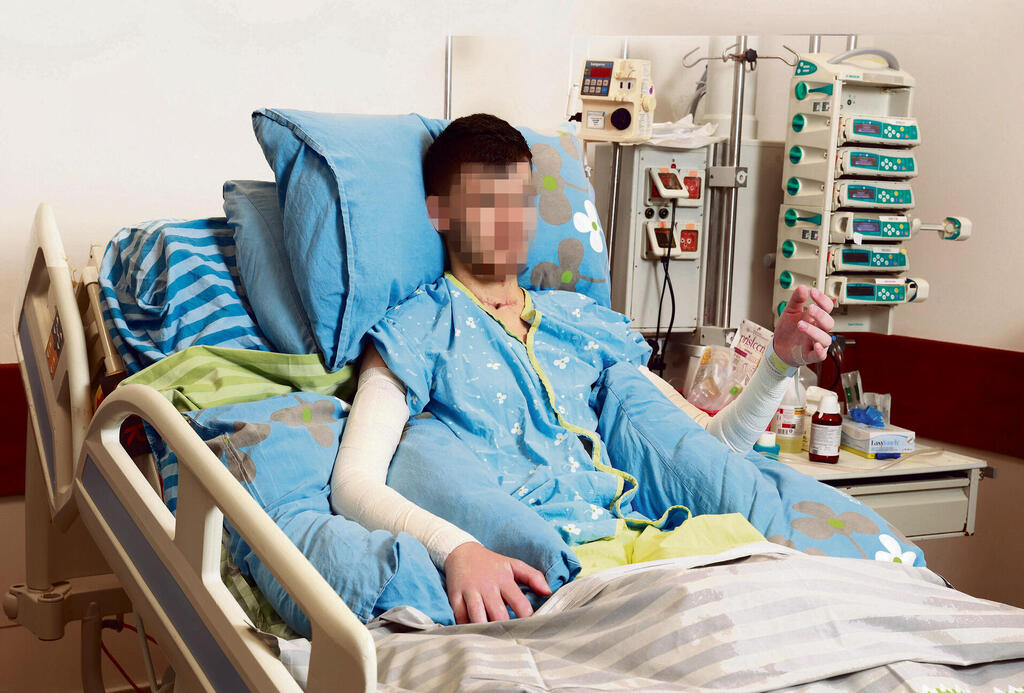Getting your Trinity Audio player ready...
Before enlisting in the IDF, D. was one of Israel's teen athletics champions. However, after becoming a promising officer of the "Oketz" K-9 Unit, he was seriously injured in clashes in northern Gaza two months ago. After two days at the Barzilai Medical Center, he was transferred to Rabin Medical Center, where he was treated for the last two months. On Wednesday, just before starting his rehabilitation, the medical staff said their goodbyes to their "medical miracle" and wished him the best.
Read more:
"During one of the patrols, I saw a terrorist. He fired an RPG rocket at us from a distance of about 40 meters," D. recalls. "It landed 1.5 meters away from me, and I was blasted away. The paramedic tried to pull me away while two more RPG missiles were fired.
"I found myself in an APC, and 40 minutes later, I arrived at the Barzilai Medical Center. A lot of doctors were waiting for me, and I underwent several surgeries. I was conscious and soon I was able to breathe on my own. At first, they thought I wouldn't be able to do anything on my own, but I managed to do everything. Everyone helped me," he recounted.
Two women who helped D. were communication therapist Saja and social worker Doreen, who worked with him every day for hours. "Every morning, when I opened my eyes, I saw Saja," the officer said. "At first it took her five hours to feed me, but she didn't give up. Doreen took care of everything, even playing songs for me.
"It shouldn't be like that in intensive care, but they took care of everything for me. We worked hard together and I believed I would succeed. I come from the world of sports, from athletics. I think it's about character. Everyone gets excited at every step I take. I've always maintained optimism here," he added.
"Now my rehabilitation begins, I don't know what awaits me, but I'm going in as prepared as possible. I learned about myself and saw that I'm an optimistic person. Intensive care is supposed to be a difficult place, people cry here all the time, and I was always optimistic. I knew I was going to get out of that situation, that's what kept me going," he explained.
D.'s story demonstrates to a large extent the change in the IDF's medical evacuation procedure for wounded soldiers, their condition, and their increased chances to survive even grave injuries. During the current war, evacuation times from the Gaza Strip are fast, in most cases taking less than an hour and help in saving soldiers' lives.
"D. came here almost two months ago with significant damage to the cervical spine and with damage to his mobility in his arms and legs," says Dr. Ilya Kagan, head of Rabin Medical Center's Intensive Care Unit.
"He underwent abdominal surgery that complicated following infections, and shrapnel injuries in all kinds of places in his body, as well as the spine. He was initially intravenously fed and suffered from pain related to the injury to his hands when he regained consciousness. Touching his hand caused him a great deal of pain," he explained.
"He's a strong and positive guy, that's what winners are made of"
Dr. Kagan added, "When he first arrived, were in the parking lot, in the protected intensive care unit. There were no separate rooms there and he suffered from insomnia, but he's a strong and positive guy, that's what winners are made of.
"Little by little he started sleeping well, we disconnected him from the ventilator, and he began eating better. D. worked for hours on physical therapy. Today he breathes on his own, talks on his own, and started to move his hands a little. Such a grave spine injury is very difficult. He is now moving on to rehabilitation in an amazing condition," Dr. Kagan added.





